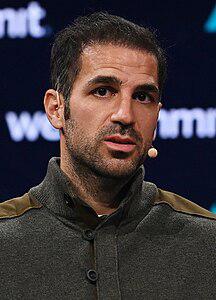Pánico global en los mercados por los aranceles de Trump: perdidas por casi 10 billones dólares
Global markets are reeling as Trump's tariffs trigger widespread panic, resulting in staggering losses nearing $10 trillion. Investors are left scrambling, assessing the far-reaching implications of trade tensions on the global economy.
In an era marked by economic interdependence, the reverberations of one nation’s trade policies can send shockwaves across the globe. The imposition of tariffs under the Trump management has sparked a profound sense of uncertainty among investors and markets alike, leading to unprecedented losses estimated at nearly $10 trillion. This article delves into the intricate web of global financial anxiety stirred by these unilateral trade measures, exploring the implications for economies, industries, and consumers worldwide.As countries grapple with the fallout, understanding the dynamics at play becomes crucial in navigating this turbulent economic landscape.
Global Market Turbulence and the Impact of Trump’s tariff Policies
the ripple effects of Trump’s tariff policies have led to a important wave of global market volatility. Investors worldwide have experienced turmoil,as the uncertainty surrounding international trade agreements and the potential for trade wars reshapes economic landscapes. As nations adjust their strategies to cope with imposed tariffs, sectors such as technology, agriculture, and manufacturing find themselves at a crossroads.Businesses face not only increased costs but also the risk of retaliatory measures from affected countries, further exacerbating the situation and causing unforeseen financial strain on global supply chains.
In a recent analysis, the financial burden of these tariffs has been staggering, with estimates indicating losses nearing $10 trillion. The impact has manifested through various channels, including:
- Stock market declines: Investors reacting to market fears have led to fluctuations in stock prices.
- Currency destabilization: Nations have seen their currencies fluctuate against the dollar, complicating trade dynamics.
- Inflationary pressures: Higher costs passed from manufacturers to consumers have led to inflation concerns across multiple economies.
The following table illustrates key sectors affected by the tariff policies, highlighting the potential economic impact:
| Sector | Projected Loss ($ Billions) | Impact Type |
|---|---|---|
| Technology | 2,500 | Market valuation decline |
| Agriculture | 1,800 | Export challenges |
| Manufacturing | 3,000 | Increased production costs |
| Automotive | 1,200 | Supply chain disruption |
Comprehensive Analysis of Economic Losses in the Wake of Rising Tariffs
The implementation of heightened tariffs has unleashed a wave of economic instability that is reverberating across global markets. Importers and exporters alike have been grappling with increased costs that reverberate through supply chains, often culminating in lost sales and diminished profit margins. As companies adjust pricing structures to accommodate escalating tariffs, consumers are feeling the pinch as well, leading to a significant reduction in discretionary spending. This paradigm shift not only threatens the profitability of businesses but also places a substantial strain on employment levels and overall economic growth.
To illustrate the magnitude of these impacts, consider the following factors contributing to the nearly $10 trillion in projected economic losses:
- Increased Production Costs: Businesses must absorb or pass on higher costs associated with imported raw materials.
- Trade Volume Decline: With tariffs in place, trade volumes have seen a significant downturn, affecting revenues across industries.
- Market Volatility: Investors are wary of uncertain policies, reducing market confidence and encouraging capital flight.
| Sector Affected | Estimated Loss ($ Trillions) |
|---|---|
| Agriculture | 2.5 |
| Manufacturing | 3.1 |
| Technology | 1.8 |
| Consumer Goods | 1.6 |
Navigating Uncertainty: Strategies for Investors Amidst Volatility
In the face of global market turmoil, investors must equip themselves with adaptive strategies to whether the storm. Understanding that volatility is a natural part of market cycles, it becomes essential to focus on long-term objectives rather than short-term panic. Consider the following approaches:
- Diversification: Spread investments across various asset classes to minimize risk exposure.
- Re-evaluation of Risk Tolerance: Assess personal risk thresholds and adjust portfolios accordingly.
- Staying Informed: Regularly update knowledge about market trends and geopolitical developments.
- Seeking Professional Advice: Consult with financial advisors for tailored strategies and insights.
Moreover, understanding market trends can considerably influence investment decisions. Analyzing past data can reveal patterns, helping investors anticipate future movements. As a notable example,as tariffs introduced by former President Trump created ripples,some industries showed pronounced vulnerability while others remained resilient. The following table illustrates sectors most impacted by tariff fluctuations:
| Sector | Impact Level |
|---|---|
| Technology | High |
| Manufacturing | Medium |
| Consumer Goods | Low |
By leveraging this details and adhering to a disciplined investment framework, individuals can enhance their resilience against fluctuations and capitalize on opportunities as thay arise.
Policy Recommendations to Mitigate Global Financial Strain from Trade Wars
To address the burgeoning financial strain due to trade wars, it is indeed imperative that policymakers adopt a multi-faceted approach focused on collaboration and innovation. This includes:
- Strengthening Multilateral Trade Agreements: Countries should seek to bolster existing trade agreements and create new partnerships that promote fair trade practices, thereby minimizing the chance of unilateral tariffs and barriers.
- enhancing Economic Diversification: Governments should encourage diversification of their economies to reduce dependency on specific markets, mitigating the impact of trade conflicts.
- Investing in Conflict Resolution Mechanisms: Establishing international panels or boards to mediate disputes can minimize retaliatory measures that exacerbate financial instability.
Furthermore, fostering a robust dialog between trade partners can lead to more sustainable economic policies. To effectively implement these strategies, it is indeed essential to:
| strategy | Benefits |
|---|---|
| Trade Education and awareness | Increasing public and buisness understanding of trade policies can reduce misinformation and panic. |
| Research and Growth support | Investing in innovation can lead to new markets and products, enhancing resilience against trade shocks. |
| Monitoring global Trends | Establishing systems to track global economic indicators enables timely policy adjustments. |
Q&A
Q&A: Global Market Panic over Trump’s Tariffs – Losses Climb to Nearly $10 Trillion
Q1: What are the main factors driving the current panic in global markets related to the tariffs imposed by Trump?
A1: The panic in global markets largely stems from the uncertainty and volatility generated by Trump’s tariffs on various goods. Investors are reacting to concerns about slower economic growth, disrupted supply chains, and retaliatory measures from other countries. These tariffs create an unpredictable trade environment, leading to heightened anxiety among businesses and investors alike.
Q2: How significant are the reported losses of nearly $10 trillion due to these tariffs?
A2: The reported losses of nearly $10 trillion are significant, representing a substantial impact on global wealth. Such a figure reflects not just declines in stock markets but also broader economic implications, including reduced consumer and business confidence, which can result in lower investment and spending levels across economies.
Q3: who are the biggest losers in this scenario?
A3: The biggest losers tend to be industries and sectors most affected by tariffs, such as agriculture, manufacturing, and technology.Farmers may face reduced exports,manufacturers could see increased costs for raw materials,and tech companies may struggle with supply chain disruptions. additionally, consumers may experience higher prices for goods due to added tariffs.
Q4: How have other nations responded to Trump’s tariffs?
A4: Other nations have reacted with a mix of retaliation and negotiation. Many countries, especially those directly affected by the tariffs, have imposed their own retaliatory tariffs on U.S. goods, further complicating trade relationships. Some nations are also seeking to negotiate exemptions or engage in discussions to ease tensions, while others are potentially looking to establish new trade agreements outside of U.S. influence.
Q5: What might be the long-term consequences of these tariffs on global trade?
A5: The long-term consequences of these tariffs could include a shift in global trade patterns, as countries might diversify their trade relationships to mitigate reliance on any single market. Additionally,prolonged trade tensions can encourage the reshoring of manufacturing or innovation in supply chains to avoid tariff repercussions. This shift could reshape international partnerships and trade dynamics for years to come.
Q6: Is there any hope for alleviating the current market panic?
A6: While the situation is complex, there is always potential for alleviating market panic through diplomatic negotiations, potential trade agreements, and clarifications about tariffs. Clear communication and steps towards reducing trade barriers can bolster investor confidence and restore some level of stability to the markets. However, the path forward will depend on the willingness of governments to collaborate and find common ground in these turbulent times.
In conclusion
the global market landscape is navigating through turbulent waters, with Trump’s tariffs emerging as the catalyst for unprecedented economic anxieties. The staggering losses, amounting to nearly $10 trillion, serve as a stark reminder of how interconnected our financial systems are and how swiftly shifts in policy can reverberate across borders. as investors and policymakers alike grapple with these unsettling realities,the lesson remains clear: the effects of trade decisions extend far beyond national boundaries,influencing the livelihoods of millions and shaping the future of international commerce. While the storm may seem relentless now, history shows us that markets are resilient; they adapt and evolve in the face of challenges. As we look ahead, it will be crucial to foster dialogue and explore collaborative solutions that promote stability and growth in this interconnected era of global trade.
FAQ
In a world fraught with uncertainty and geopolitical tension, the quest for stability often hinges on collaboration and solidarity among nations. Recently, Labor leader Keir Starmer took a pivotal step in this direction by convening representatives from 26 countries to address critical security guarantees for Ukraine. As the region grapples with the lingering shadows of conflict and the pursuit of sovereignty, this gathering marks a importent moment in international diplomacy. The discussions aim to forge stronger alliances and reaffirm commitments to Ukraine’s sovereignty, all while navigating the complexities of the global political landscape.In this article, we delve into the motivations behind this unprecedented summit, the key topics on the agenda, and the potential implications for Ukraine and the broader international community.
Starmer’s Diplomatic Endeavor: A Global Alliance for Ukraine’s Future
In a bold move to secure Ukraine’s future, starmer has brought together 26 nations for an unprecedented diplomatic summit aimed at establishing a robust framework of guarantees for Ukraine.this coalition underscores the urgent need for a unified international response to the ongoing crisis,emphasizing the importance of collective security and long-term support. Each participating country is expected to contribute not only to military aid but also to economic assistance and humanitarian efforts, reinforcing the notion that Ukraine’s stability is a shared duty among democracies worldwide.
The partnership suggests a multi-faceted approach to aiding Ukraine, focusing on key areas such as:
- Military Support: Enhanced defense capabilities thru advanced weaponry and training.
- economic Stability: Financial aid packages to bolster Ukraine’s economy and infrastructure.
- Humanitarian Aid: Resources for supporting displaced populations and basic needs.
- Diplomatic Engagement: Continuous dialog to strengthen alliances and engage with international institutions.
By fostering such alliances,Starmer aims to create a cohesive strategy that not only addresses the immediate necessities but also invests in ukraine’s long-term sovereignty and resilience. As global tensions rise, this venture will also serve to reinforce the commitment of democratic nations to uphold values of peace and security in the face of adversity.
Key Takeaways from the Summit: strengthening Security Guarantees
The recent summit convened by Starmer facilitated profound dialogue among representatives from 26 nations regarding the enhancement of security guarantees for Ukraine. A significant emphasis was placed on the importance of collective defense measures and multilateral cooperation in response to emerging threats.Key discussions highlighted:
- Increased Military Support: Nations committed to providing advanced military resources and training to bolster Ukraine’s defense capabilities.
- Intelligence Sharing: participants agreed on the need for improved intelligence collaboration to preempt potential aggressions.
- Economic Stability Measures: The importance of ensuring economic resilience in Ukraine to support long-term security ambitions was underscored.
Moreover, the summit fostered a unified vision around long-term strategic partnerships aimed at fortifying Ukraine’s sovereignty.Discussions also ventured into crafting a framework for mutual defense pacts, which aims to offer reassurance and solid backing in times of crisis. Notable proposals included:
| Proposal | Description |
|---|---|
| Joint Military Exercises | Regular collaborative drills to enhance readiness and interoperability among allied forces. |
| Rapid Response Units | Formation of special units dedicated to speedy deployment in case of hostility. |
| Cybersecurity Alliances | Strengthening protections against cyber threats through shared technologies and expertise. |
Next Steps for International Cooperation: Recommendations for Effective Action
To enhance the framework for international cooperation on Ukraine, it is crucial to establish clear, actionable guidelines for member nations.This includes fostering open lines of communication to facilitate real-time discussions among countries involved. Key recommendations are:
- Regular Summit Meetings: Schedule quarterly meetings to ensure ongoing collaboration and reassess commitments.
- Shared Intelligence platforms: Develop a centralized system for sharing defense and humanitarian details among the 26 countries.
- Joint Military Exercises: Promote training initiatives that enhance interoperability among armed forces.
| Action Item | Responsible Parties | Timeline |
|---|---|---|
| Establish Communication Protocols | Foreign Ministries | Within 3 months |
| Launch Intelligence Sharing platform | Defense Agencies | 6 months |
| Initiate Joint Exercises | Military Leaders | 1 year |
In addition to these foundational steps, countries should also prioritize public engagement to galvanize support for international efforts. Initiatives could include:
- Public Education Campaigns: Inform citizens about the situation in Ukraine and the importance of international support.
- Cultural Exchange Programs: Foster understanding and solidarity through art and dialogue initiatives.
- Collaborative Research Projects: Invest in studies examining the humanitarian impact of the conflict and effective responses.
Q&A
Q&A: Starmer hosts 26 Nations to Discuss Guarantees for Ukraine
Q1: What prompted Sir Keir Starmer to convene this meeting of 26 countries regarding Ukraine?
A1: The meeting was prompted by the ongoing conflict in Ukraine and the need for a unified international response to ensure the country’s sovereignty and security. Starmer aimed to strengthen alliances and reinforce commitments to support Ukraine amidst the heightened geopolitical tensions.
Q2: What were the main topics of discussion during the meeting?
A2: The discussions primarily focused on enhancing security guarantees for Ukraine, exploring financial and military support, and discussing diplomatic strategies to foster stability in the region. Additionally, participants looked at the implications of a prolonged conflict and the role of international coalitions in providing long-term assistance.
Q3: Which countries participated in this high-level gathering, and why is their involvement significant?
A3: The meeting brought together 26 nations, including key players from Europe, North America, and beyond. The diversity of participants highlights the global consensus on the need to support Ukraine, as these countries collectively represent significant military and economic resources, which can be pivotal in shaping the response to the crisis.
Q4: How does Sir Keir Starmer view the role of the UK in these discussions?
A4: Sir Keir Starmer sees the UK as a vital leader in the international response to the Ukraine crisis. He believes that the UK should not only provide direct support to Ukraine but also facilitate discussions among allied nations to ensure a coordinated approach that enhances collective security.
Q5: What outcomes were anticipated from this meeting, and what are the next steps?
A5: Participants expressed hope for tangible commitments to enhance Ukraine’s defense capabilities and a renewed pledge of support from allied nations. The next steps involve drafting a joint statement that outlines specific actions, increasing military aid, and establishing a framework for ongoing dialogue to adapt to the evolving situation on the ground.
Q6: How does this gathering reflect on global attitudes towards Russia’s actions?
A6: This meeting underscores a growing global consensus against Russia’s aggressive actions in ukraine. By uniting various nations in support of Ukraine, it signals a strong, collective stance that seeks to deter further aggression while affirming the importance of sovereignty and international law.
Q7: What are the potential implications of this meeting for Ukraine’s future?
A7: The implications could be significant for Ukraine, as stronger international guarantees may bolster its defense against ongoing hostilities. Additionally, united support from multiple nations could enhance Ukraine’s negotiating position in any future diplomatic discussions and ensure sustained assistance as it navigates the challenges ahead.
In Conclusion
As the dust settles on this pivotal gathering, the commitment of 26 nations to bolster Ukraine’s defenses serves as a testament to the urgent call for solidarity in the face of adversity. Sir Keir Starmer’s leadership in convening this coalition underscores the importance of dialogue and cooperation in addressing the complex challenges that threaten regional stability.While the outcome of the discussions will unfold in the coming months, one thing remains clear: the international community recognizes the need for a unified response to ensure ukraine’s sovereignty and support its ongoing struggle for peace. As we look to the future,the actions taken today may resonate far beyond the borders of Ukraine,shaping the geopolitical landscape for years to come.
Cresce in Italia la distribuzione farmaceutica digitale
The rise of digital pharmaceutical distribution in Italy is reshaping the healthcare landscape. With technology streamlining access to medications, patients enjoy greater convenience, while pharmacies adapt to meet evolving demands in this digital age.
Il giallo di Pasquetta scuote il Canavese: trovati i documenti, resti e la bici in un bosco. Come c’è finita lì?
In a chilling twist during the Easter celebrations, the Canavese region is abuzz with intrigue. Hidden within a secluded forest, authorities unearthed documents, skeletal remains, and a bicycle. Questions swirl: how did these items end up in such a remote location?
Nascondeva in un garage due pistole clandestine, arrestato
In a startling revelation, authorities uncovered two clandestine pistols hidden in a garage, leading to the arrest of a local resident. The discovery raises concerns over illegal firearms and community safety, prompting further investigation into the matter.
Calcio: il Pescara domani in campo per recupero con Arezzo
In a crucial clash, Pescara prepares to face Arezzo tomorrow as they seek redemption on the field. With both teams eyeing valuable points, anticipation builds for an exciting match that could shape their season’s trajectory.
Ciclista muore urtato da polizia: agente, ‘lo chiamavo per nome’
A tragic incident unfolded as a cyclist was fatally struck by a police vehicle. The officer involved expressed profound sorrow, stating, “I called him by name,” underscoring the personal connection and loss felt amidst this devastating event.
Vinitaly: Spazio Abruzzo, presentata Fiera agricoltura Lanciano
At Vinitaly, the vibrant Spazio Abruzzo showcased the rich agricultural heritage of the region, highlighting its role in the upcoming Fiera Agricoltura Lanciano. This celebration of local produce invites visitors to discover the flavors and traditions of Abruzzo.
Alla Reggia di Venaria apre la mostra sulla Genova dei Dogi
The Reggia di Venaria opens its doors to a captivating exhibition that invites visitors to explore the rich history of Genoa during the Doges’ era. Artifacts, paintings, and interactive displays bring to life the maritime power and cultural splendor of this iconic city.
Vinitaly: successo a Verona per il ‘Cerasuolo d’Abruzzo’
At Vinitaly, the vibrant ‘Cerasuolo d’Abruzzo’ captured the spotlight, showcasing its rich heritage and stunning rosé hues. This Abruzzese gem delighted wine enthusiasts, solidifying its status on the global stage amid a tapestry of exceptional wines.
Emmanuel Macron pourrait reconnaître l’Etat palestinien en juin
In a significant diplomatic move, President Emmanuel Macron is considering recognizing the State of Palestine as early as June. This potential acknowledgment reflects a shift in France’s foreign policy and may influence the broader Middle East peace dialogue.
Stampavano banconote false e le vendevano in tutta Europa
A clandestine operation unfolded across Europe, as a network of counterfeiters meticulously printed fake banknotes, flooding the market with their duplicitous currency. Their illicit enterprise challenged law enforcement, sparking a continent-wide pursuit for justice.
Anziana borseggiata ad Avigliana, presi gli autori
In a recent incident in Avigliana, an elderly woman fell victim to pickpockets, capturing the community’s attention. Local authorities swiftly pursued the suspects, leading to their apprehension and offering a sense of security to residents.
En direct, guerres au Proche-Orient : Donald Trump juge « possible » une action militaire contre l’Iran
In a recent statement, Donald Trump acknowledged the possibility of military action against Iran amid escalating tensions in the Middle East. As conflicts unfold in the region, his comments signal a willingness to confront new challenges in international politics.
Oltre 27 mila visite a Ortona per Vespucci e Villaggio IN Italia
Over 27,000 visitors flocked to Ortona, Italy, for the captivating Vespucci event and the enchanting Villaggio. This lively celebration showcased the rich culture and maritime heritage, drawing locals and tourists alike to this historic coastal town.
All’asta 350 orologi di lusso sequestrati dalla finanza nel 2016
In a remarkable auction, 350 luxury watches seized by the finance police in 2016 will be offered to the highest bidder. This unique event not only highlights the allure of prestigious timepieces but also underscores the importance of regulatory oversight.
Le Soudan et les Emirats arabes unis s’affrontent devant la Cour internationale de justice
The international spotlight intensifies as Sudan and the United Arab Emirates face off at the International Court of Justice. This legal battle highlights the complexities of diplomacy and territorial claims, illustrating the intricate web of regional politics.
Comune Termoli, avviso per 35 tirocini formativi per disoccupati
The Comune di Termoli has announced an exciting opportunity for unemployed residents, offering 35 internships aimed at skill development and workforce integration. This initiative highlights the municipality’s commitment to enhancing job prospects and supporting local talent.
En direct, droits de douane : suivant l’élan des Bourses asiatiques, les places européennes ouvrent en forte hausse au lendemain du revirement de Donald Trump
European markets opened significantly higher, buoyed by a surge in Asian stock exchanges. This rally follows Donald Trump’s unexpected policy shift on tariffs, sparking renewed investor optimism and a wave of confidence across global financial hubs.
Frode fiscale da 15milioni nel settore import auto estere
Authorities are investigating a tax fraud scheme involving €15 million related to the import of foreign vehicles. The scandal highlights significant loopholes in fiscal regulations, prompting calls for stricter enforcement and greater transparency in the sector.
Marito e moglie trovati morti, probabile omicidio-suicidio
In a tragic turn of events, a husband and wife were found dead in their home, with authorities suspecting a possible murder-suicide. The community is in shock as the details surrounding this heartbreaking case continue to unravel.
Camino dedica a Fenoglio e al 25 aprile il Festival letterario
The literary festival “Camino dedica a Fenoglio e al 25 aprile” celebrates the profound legacy of Italian writer Beppe Fenoglio, intertwining the essence of literature with themes of resistance and freedom, marking an inspiring tribute to April 25th.
Piazza Affari pronta al rimbalzo, future in rialzo del 9%
Piazza Affari shows signs of a robust rebound, with futures rising by 9%. Market optimism grows as investors anticipate a turnaround driven by positive economic indicators. Analysts suggest a cautiously optimistic outlook for the coming days.
Pg Milano, parere parzialmente positivo a semilibertà di Stasi
In a notable development, the Milan court has given a partially positive opinion regarding the semi-liberty of Stasi. This decision sparks conversations about rehabilitation and the complexities of justice, as the implications continue to unfold.





